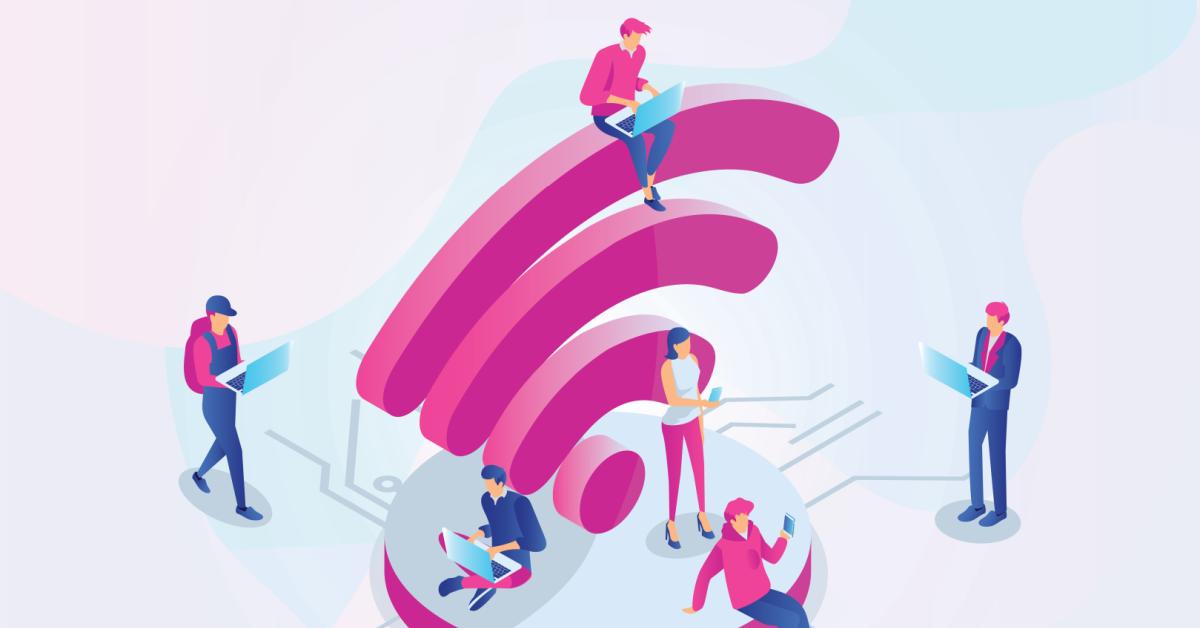
social WiFi Science
What would happen when social media suddenly shuts down? Will there be a disaster? Or would life go on as usual without much damage? In fact, there were several times when social media outages have happened in the past. In October 2021,Facebook and its associated services, including Instagram and WhatsApp, experienced a global outage that lasted about six hours. For many, the blackout felt like a “nightmare” as they were increasingly dependent on social media to entertain and communicate with others. This disruption ruined all the peaceful running of many individuals’ routine and other companies for the whole day and highlighted the increasing dependency on social media makes society highly vulnerable to disruptions; when social media platforms experience shutdowns, the following impacts on communications, global connections, and mentality highlights the need for balancing our real life with usage of social media.
Social media is a platform for websites and applications that enable users to create and share content or to participate in social networking. In the age of information technology, these social media platforms have become the foundation of communication, social connection, and information flow. A social media outrage is not common, but it does happen, mostly due to technical errors. For example, changes in internet infrastructure or DNS, a Domain Name System, can cause outages. DNS is a protocol that allows us to communicate under the use of human names rather than using each IP address. A failure in DNS can result in any error to access service or products. Online hackings or even intervention by governments can interfere with economies and societies. In an ideal world, the shutdown may lead people to have healthier online habits, but we aren’t certain if reality will be the same.
One remarkable effect of social media outrage is the absence of communication with other people. Significant population of users heavily rely on social media such as Instagram, Facebook, and Snapchat for daily communication and instant messaging with their friends and family. Since humans are inherently social creatures, the lack of interconnection with others would lead to feelings of isolation and further depression. This could deteriorate relationships among people, especially those who cannot be in contact with each other frequently. For example, a relationship between a long-distance couple can worsen or even break since the couple would rely on an online chatting system to share their daily life and emotions. This can lead to frustration, misunderstanding between people, or a temporary sense of disconnect. People will find alternatives such as phone calls, emails, or SMS to be in touch with others. Online blackouts not only affect personal communications but also global conversations, which is crucial for national security and diplomacy. Many countries use their social media accounts in order to enhance mutual trust and prevent conflicts with other countries by building diplomatic relations and clarifying intentions. Open dialogue about national policies can prevent misunderstandings and make clear that their intentions are not offensive. Social media facilitates information flow and sharing across different countries and time zones. Disruption in social media could ripple across the world, disturbing international alliances and even emergency responses, which relies on instant communication.
Social media blackouts also have severe economic and political impact in our lives. Companies that use social media for marketing and customer service could experience outstanding setbacks and drop in traffic and sales. As social media develops rapidly, many companies leverage social media to show their products and to build their brand awareness to the various range of customers across several platforms. Also, social media platforms enable businesses to target their advertisements to the most relevant audience and maximize the marketing effectiveness. According to the 2023 Social Media Marketing Industry Report, 86 percent of marketers said that their social media marketing got more public attention to their businesses. Given the revenue from digital marketing, the damage that occurs during an outage is enormous. For instance, in 2021, Facebook’s shares fell by 5.4% with an additional loss of 99.7 million dollars in revenue. Jobs in the digital world and marketing will take an inevitable break with everything stopped, interfering with their daily works as well. Individuals who generate income through social media such as influencers and content creators will suffer financially due to lost opportunities for content making. Dr Rachael Kent, lecturer in digital economy noted that “on the business front, there’s always going to be a lot of anxiety around not being able to manage and run your business effectively … we live in an always-on, always-available culture.” The reliance on online platforms is so great that their absence, even temporary, can have far-reaching consequences.
Social media is often viewed as an addiction but also an essential part of our daily routine. The social media platforms are designed to keep users engaged, with strategies like infinite scrolling, notifications, and algorithms that target personal preferences. This can lead to endless use, where people feel they need to keep checking their notifications from social media at the expense of other physical activities and relationships. On the other hand, for many people, social media has simply become a part of daily routines. It serves as a way to keep in touch with friends and family, access news and information, and engage in professional work. Nowadays, given our heavy reliance on social media, like other routine activities such as drinking water, it has become essential to have control of its usage and maintain a balance with other important aspects of life.


